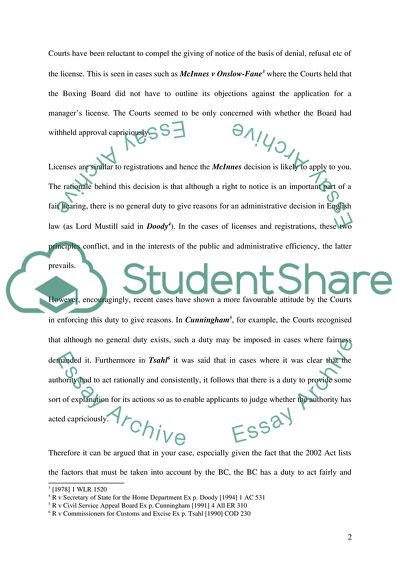Cite this document
(Analysis of Administrative Law Cases Assignment, n.d.)
Analysis of Administrative Law Cases Assignment. https://studentshare.org/law/1715152-administrative-law
Analysis of Administrative Law Cases Assignment. https://studentshare.org/law/1715152-administrative-law
(Analysis of Administrative Law Cases Assignment)
Analysis of Administrative Law Cases Assignment. https://studentshare.org/law/1715152-administrative-law.
Analysis of Administrative Law Cases Assignment. https://studentshare.org/law/1715152-administrative-law.
“Analysis of Administrative Law Cases Assignment”. https://studentshare.org/law/1715152-administrative-law.


